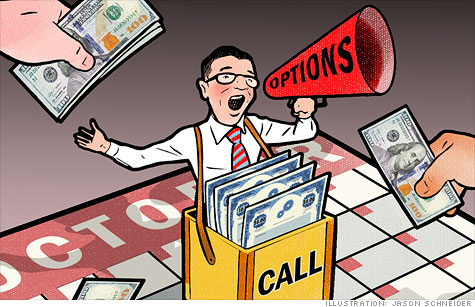 Welcome back!
Welcome back!
Not just from your holiday weekend but welcome back to the top of the S&P as we attempt our 7th breakout of the year. That's right, a month never goes by when we don't have a new rally that takes us back to the top of the channel, nor does a month go by when we don't re-test the bottom of the channel either – but let's ignore that as it's unpleasant.
Interestingly, as you can see from Dave Fry's S&P chart, there have only been 9 positive weeks out of 19 in 2014 but oh boy did they make them count – with almost every one of them setting a new record – before the selling resumed. Despite all these "records" being set, the average capital allocation strategy hasn't performed all that well in 2014, so far:

Thank goodness we're not pursuing any of those! Thank goodness also that we didn't give our money to any hedge fund managers, as hedge funds are off to their worst start of the year since the Financial Crisis. Not listed here is our "Be the House – Not the Gambler" strategy, which we will be reviewing live today at 12:15 EST in a Live Webinar (sign up here for free).
 Selling risk to others in our Member Portfolios has given us 10%+ gains for year (so far). In fact, the only strategy we agreed with from the above chart was gold, which we bet heavily (along with DBA) at the beginning of the year. We were still knocking it out of the park in early May, with 40 of our 47 trade ideas in early may coming up winners already (see our May Trade Review).
Selling risk to others in our Member Portfolios has given us 10%+ gains for year (so far). In fact, the only strategy we agreed with from the above chart was gold, which we bet heavily (along with DBA) at the beginning of the year. We were still knocking it out of the park in early May, with 40 of our 47 trade ideas in early may coming up winners already (see our May Trade Review).
Remember, this isn't about making good picks, per se – it's about having a good strategy that gives you a high probability of success – even when you are wrong about a trade. BEING THE HOUSE and selling risk (through options) to others is the closest thing we get to a "sure thing" in trading. It's not fast, it's not sexy – but it works!
Actually, I shouldn't say it's not fast, as we have plenty of trade ideas that make very quick returns on cash – even when the intention was to make a long-term trade like (from our May picks):
- AAPL 2016 $500/550 bull call spread at $21, now $32.60 – up 64%
- DLTR Jan $50/55 bull call spread at $2.40, selling 2016 $45 puts for $3.60 for a net $1.20 credit, now -0.20 – up 83%
- EZCH Jan $25/30 bull call spread at $1.85, selling $20 puts for $1.75 for net .10, now .70 – up 600%
- 10 IRBT Dec $35/45 bull call spreads at $2.90, selling 10 Dec $30 puts for $3.30 for net $400 credit, now net $50 credit – up 87% ($350)
- STX 2016 $52.50/57.50 bull call spread at $1.90, selling 2016 $30 puts for $1.60 and June $50 puts for $1.60 for net $1.30 credit, now 0.25 credit – up 80%
 In all those cases, we SOLD more premium than we bought – that's what we teach you how to do in these Webinars (and at PSW every day!). While it wasn't our intention to make 80% in a month, if a trade works out more successfully than we thought, the profits can come very quickly.
In all those cases, we SOLD more premium than we bought – that's what we teach you how to do in these Webinars (and at PSW every day!). While it wasn't our intention to make 80% in a month, if a trade works out more successfully than we thought, the profits can come very quickly.
The key to the strategy, however, is that – when a trade DOESN'T go your way – you are able to make adjustments that turn many of our losers into winners over the long haul.
Now that earnings season is mostly over, I'm not adverse to giving out a few freebies in the morning post. For instance, today in the Webinar we'll be looking at ABX, which is back where we liked them in the fall at $16.50.
Using our "Be the House" strategy, we're not going to buy ABX for $16.50, though. What we're going to do is PROMISE to buy ABX for $15 for $17 in January of 2016 by selling the put contract. The put contract obligates us to buy ABX for $17 from the seller of the stock. He is getting essentially insurance from us that, in his worst case, he will get $17 back for his stock. In exchange for our guarantee, he will pay us $2.90 (up front) for our contract to buy his stock.
That puts us into ABX at a net of $14.10, which is 14.5% below the current price. We could leave that alone and have a very nice entry on the stock and, if ABX is over $17 in January 2016, the contract simply expires worthless and we keep our $290 (option contracts are for 100 shares each). If ABX is below $17, we are forced to pay $1,700 anyway, but we still have our $290 for the contract, so our net on 100 shares is $1,410.
That's the most basic part of our strategy, we are NOT buying a stock, we are buying the risk of owning a stock we REALLY WANT to own anyway and getting paid for it. We can fill our portfolios with promises to buy stocks for discounts and leave it at that and still make very nice returns but, we can also be more aggressive than that.
 In the case of ABX, we feel it's very undervalued at $16.50 and we can buy the Jan 2016 $15 calls for $3.35. That is an options contract we buy (for $335) that allows us to buy ABX for $15, which is $1.50 below the current price. The additional $1.85 is the "premium" we are paying for the options contract.
In the case of ABX, we feel it's very undervalued at $16.50 and we can buy the Jan 2016 $15 calls for $3.35. That is an options contract we buy (for $335) that allows us to buy ABX for $15, which is $1.50 below the current price. The additional $1.85 is the "premium" we are paying for the options contract.
But we don't like paying premium, so we SELL risk premium to someone else in the form of the ABX 2016 $20 calls for $1.55 ($155). What we are doing there is promising to sell ABX to someone else at $20 in exchange for his $1.55 today. This is what we call the J "Wimpy" Wellington Wealth Building Strategy!
We DON'T actually own ABX but we did buy the right to purchase it for $15 for $3.35. Now we are selling the right to buy it for $20 for $1.55. That drops our net for our $15 calls to $1.80 and, of course, we have a $5 price advantage to our caller, so we never have to worry about ABX going over $20. That nets us into the stock at $15 for $1.80 so, effectively, we're paying $16.80 for ABX or .30 worth of premium.
What we get for our 30 cents, is 100% of the upside of ABX over $16.80 but, rather than spend $1,650 for 100 shares of stock (per contract), we're using just $180 and, up to our cap at $20, we have the potential for $320 of upside – a 177% return on our cash!
But wait, there's more! Don't forget we also sold the 2016 $17 puts for $3.35. That puts another $335 in our pocket and now we have a net CREDIT of $1.55 ($155) and, if ABX is over $20, we not only keep that $155 but we make another net $500 on the spread – isn't this fun?
That's a net profit of $655, laying out no cash at all and our worst case is we end up owning 100 shares of ABX per contract at $17 less the $1.55 net credit or $15.45 – still $1.05 less (6.3%) less than it's trading for right now.
6.3% downside protection on our entry and we can make $655 of upside, which is 40% of ABX's current price if things go well AND we are hardly using any of our cash (we do use $333 of margin, so the return on margin is "just" 196%). If you pursued this strategy with every stock you ever bought – would your trading performance be better or worse than it is now?
Now you know how to construct an "artificial buy/write" – just one of the strategies we like to employ at Philstockworld. If the indexes continue to trend higher this week, despite our skepticism, we'll be looking over our Buy List (Members Only) in our Live Chat Room and doing a bit of bargain shopping.
I am still skeptical of the rally but we have to play the cards we're dealt. Here's an interesting chart from the WSJ, showing how anemic this "recovery" really is. Also, keep in mind that the US recalculated the way we measure GDP (accounting for the future value of films and TV shows, for instance), which is a big part of the boost we have vs everyone else.




